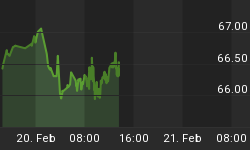Bonds were knocked lower again on Tuesday, with the 10-year yield reaching 3.72%. The 4.00% level is now clearly in range, and I expect rates to exceed that level within a couple of weeks.
The catalyst for today's move seems to have been Richmond Fed President Lacker's remarks indicating his opinion that the Fed should reconsider QE2 and stop the bond purchases. Lacker is a well-established hawk and a non-voter this year, but the market has come to assume that the buying will be there for a while and so there's no need to head to the exits yet. Talk like this makes investors nervous, because the buying from the Fed is a big reason that yields are as low as they are - and clearly, even that robust buying isn't enough to keep yields down.
With the rising yields, the Mortgage Bankers Association's Purchase and Refi indices remain mired at low levels, indicating light volumes of traffic for new mortgage loans and for mortgage refinancing. Since low rates aren't helping the housing market, the implication is that the main transmission of monetary policy through wealth effect channels is coming through equity market prices (commodity price increases are a net drag, since the U.S. is a net importer of commodities). God help us (or more to the point, God help Bernanke) if the stock market ever falls from its lofty perch.
There seems to be scarce catalysts for that outcome. Or, rather, there seem to be many catalysts, but the fear sense in investors is suddenly inert. There was a very mild shudder in European bond markets today when Anglo Irish Bank said it expects a 2010 pre-tax loss of some €17.6bln (around $24bln). This represents something less than an improvement over the €12.8bln loss for 2009 (actually for 15 months ended in Dec 2009, so it's not as bad as it sounds). In a sobering reminder of the limits of the resuscitative powers of a steep yield curve, the bank reported net interest income of €700mm, which is nice; however, 43 years of such interest income would be required to replace the €40+bln lost in the last two years. "I'm a doctor, not a miracle-worker, Jim!"
Ango Irish's Chairman speculated that something on the order of €50bln would be required to clean up the Irish banking system. The good news is that the government has already been offered a €85bln bailout by the EU; the bad news is that the rescue cash is supposed to also tide the Irish government over for a while. And further bad news is that it still isn't clear whether Ireland will take the cash with the associated strings. No matter; European bonds fell, but no more than U.S. bonds fell today.
There is no economic news of note due tomorrow, but a few items to watch for on the tape. For starters, Chairman Bernanke will be testifying at the House Budget Committee at 10:00ET. More interesting, since we hear from him less, is the speech by SOMA manager Brian Sack at 5:45pm tomorrow evening. The topic is QE2. In the past, Mr. Sack has been very sanguine about the ease with which the FOMC could divest itself of its securities portfolio when the time came. It is extremely unlikely that we will sound any alarm, but at some point he must see the impossibility of quietly selling a trillion dollars worth of securities without pushing interest rates higher (especially since they are already the buyer of last resort apparently). He may also comment on the Desk's capability to handle more purchases if needed (remember that the $600bln plus reinvestment of mortgage cash flows is thought to be approximately what the Fed said was the maximum flow rate they could handle comfortably). I will be attentive to his speech.
While the market seems immune to any setbacks of more than three days and 2%, I think that we are nearing another low-risk time to buy index puts. Not only are implied volatilities touching low levels not seen since the halcyon days of 2007 (making such a punt comparatively inexpensive), but economists are beginning to get ebullient. Deutsche Bank today raised its 2011 growth forecast a full percentage point to 4.3%, and Joe Lavorgna is usually a wonderful contrary indicator. But he isn't alone. The economic data has been surprising on the high side, and that usually leads to economists trying to catch up to the data rather than letting the (significantly mean-reverting) data come back to them. The chart below shows the Citi Economic Surprise Index against the S&P 500.

If you've been pleasantly surprised recently, be aware that doesn't usually continue forever.
Note that high readings of this index ...which represent periods when the news has been better-than-expected...usually precede declines in the index (although parts of 2009 look like an anomaly). It isn't that the data suddenly gets bad; it's that when economists have been surprised this much and the market is running away from them, they tend to reflect the exuberance of the market and ratchet up expectations for future data. Since economic data never improves in a straight line, this sets up the inevitable disappointment. Of course, the effect works the other way as well.
















